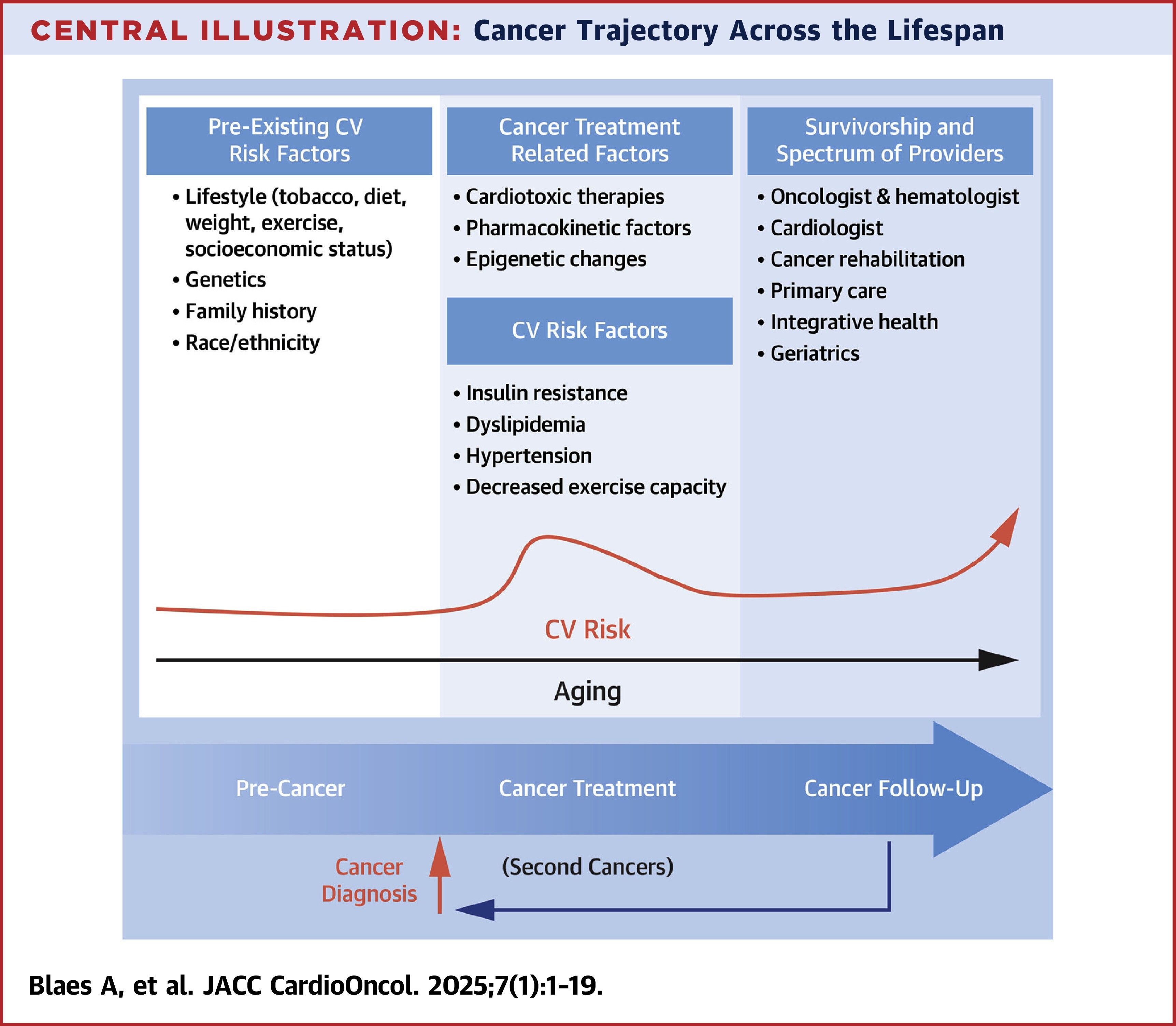JACC: CardioOncology Expert Panel Addresses CV Care After Cancer Therapy
An expert panel report, the last of three in a special series published in JACC: CardioOncology, focuses on evaluating the current evidence and highlighting gaps in both evidence and guideline recommendations for managing cardiovascular disease in cancer survivors who have completed cancer therapy.
Cancer survivors face an elevated risk of cancer therapy-related cardiovascular toxicity (CTR-CVT), particularly those treated at a young age, and those treated with high anthracycline dose and/or chest radiation. Because patients present with cardiovascular risk factors at different time periods (before, during and after treatment) and because of diverse cancer treatment-related effects, an integrative and collaborative approach is required both during and after treatment.

"Focusing on risk stratification, monitoring, and treatment remains imperative after cancer therapy," according to the panel, which was chaired by Anne Blaes, MD.
After cancer treatment, survivors require surveillance for cancer recurrences and secondary cancers as well as evaluation and treatment of long-term cardiovascular risks. Annual screenings are imperative, and higher-risk patients should undergo additional cardiovascular testing (e.g., imaging). Cancer survivors should be educated about potential future risks of developing cardiovascular disease and the importance of identifying, preventing and treating cardiovascular risk factors.
The report includes treatment-specific considerations, including recommendations and gaps in knowledge, for anthracyclines, HER2-directed therapies, endocrine and androgen deprivation therapies, platinum-based chemotherapies, radiation therapy, immune checkpoint inhibitors, therapies in hematologic malignancies, tyrosine kinase and proteasome inhibitors, CAR-T and BiTE therapies, hematopoietic cell transplantation, and pediatric and young adult cancer survivors. The report also looks at guideline-directed medical therapy for CTR-CVT, including medications and device therapies as well as optimal duration.
The number of both pediatric and adult cancer survivors continues to grow with advancements in cardiovascular care. These patients incur a significantly higher risk of cardiovascular morbidity and mortality compared with the general population. Thus, the authors emphasize the benefit of "utilizing advancing technologies, such as genomic tools and artificial intelligence, to enhance our understanding of risk stratification using real-world data." They also suggest that "further research should focus on defining optimal long-term monitoring and surveillance strategies and assessing the associated cost effectiveness of these strategies."
This report is the last of a three-part Expert Panel series focused on cardiovascular care before (part 1), during (part 2), and after (part 3) cancer therapy.
Clinical Topics: Cardio-Oncology
Keywords: Heart Disease Risk Factors, Cardio-oncology
< Back to Listings

